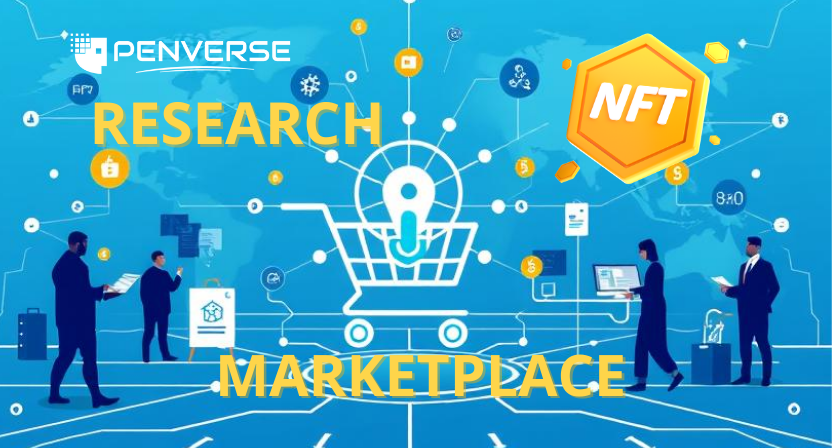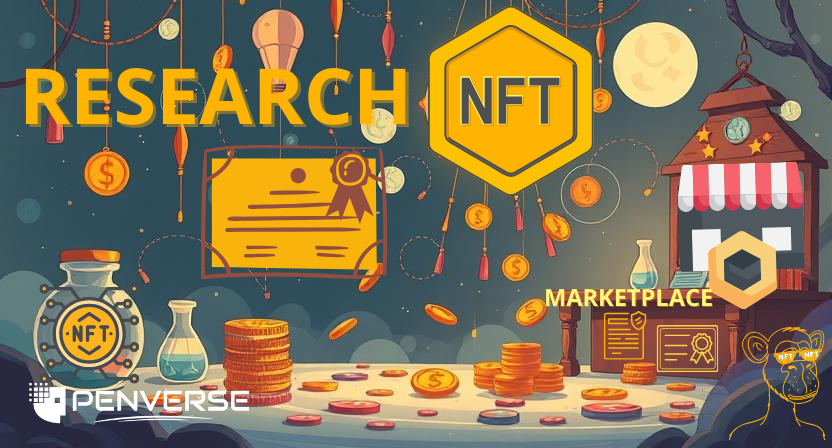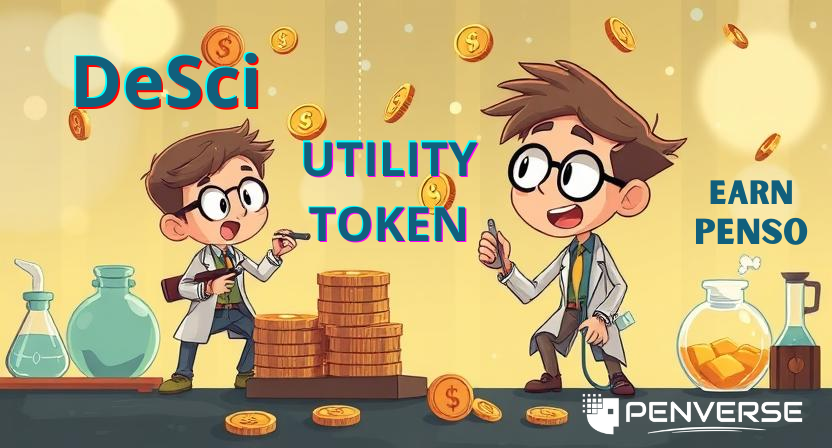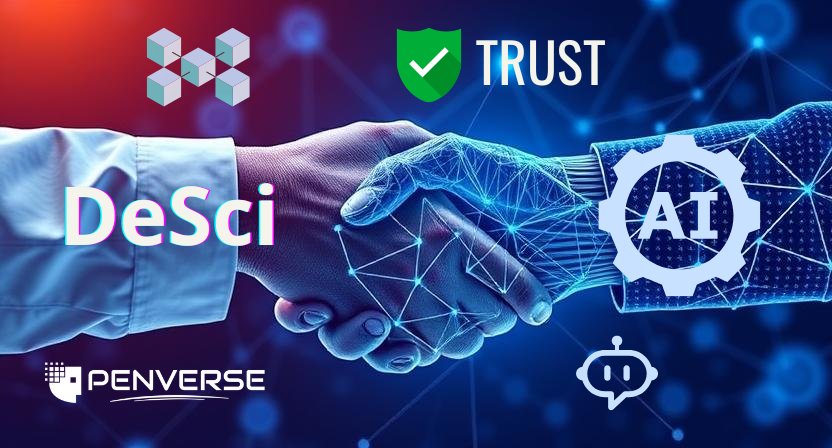DeSci vs. Academia: Who Wins?

Academia has long been the foundation of scientific discovery. Universities, research institutions, and scholarly journals have dictated how knowledge is produced, validated, and shared. However, a new player has entered the field—Decentralized Science (DeSci). Powered by blockchain, artificial intelligence, and decentralized governance, DeSci is challenging the long-standing academic model, offering a more transparent, accessible, and efficient way to conduct research.
The big question remains: Can DeSci outcompete traditional academia, or will the university model continue to dominate scientific progress?
Understanding the Traditional Academic Model
Academia has long been the gold standard for scientific progress, but it operates within a system that has barely evolved in the last century. While it has enabled groundbreaking discoveries, it also comes with significant drawbacks.
Key Features of Academia
- Centralized Control – Universities and elite institutions dictate research priorities, often based on government or corporate funding.
- Journal Paywalls – The majority of high-impact research is locked behind expensive paywalls, limiting accessibility.
- Slow & Bureaucratic – The peer-review process is slow, taking months or even years to validate findings.
- Funding Challenges – Research funding is competitive, favoring well-established scientists over new innovators.
- Limited Collaboration – Researchers often work in silos within their institutions, limiting global cooperation.

Despite these limitations, academia has produced some of the most important scientific breakthroughs in history. However, many researchers argue that the system is outdated, inefficient, and inaccessible to those outside elite institutions.
What is DeSci?
Decentralized Science (DeSci) is an emerging movement that leverages blockchain, AI, and decentralized governance to make scientific research more open, transparent, and collaborative. Unlike academia, which is controlled by institutions, DeSci operates on community-driven principles where knowledge is freely shared, funding is decentralized, and research validation is automated.
Key Features of DeSci
- Open-Access Research – No paywalls; all research is freely accessible to anyone.
- Community-Driven Funding – Scientists receive funding from DAOs (Decentralized Autonomous Organizations) rather than relying on government grants.
- AI-Powered Research Validation – AI streamlines peer review, reducing bias and speeding up verification.
- Blockchain-Backed Transparency – Research data and findings are stored on immutable ledgers, preventing fraud.
- Global Collaboration – Scientists across the world can collaborate without institutional restrictions.

DeSci is not just a new way to conduct research—it’s a radical shift in how knowledge is created, verified, and shared.
Comparing DeSci and Academia
Let’s break down how these two models compare in key areas:
| Aspect | Traditional Academia | Decentralized Science (DeSci) |
|---|---|---|
| Access to Research | Paywalled, restricted | Open-access, free for all |
| Funding Model | Government, corporate grants | Community-driven DAOs, token incentives |
| Peer Review | Slow, biased, institutional control | AI-powered, fast, decentralized validation |
| Collaboration | Limited to universities and networks | Open, global, borderless collaboration |
| Data Ownership | Owned by institutions and publishers | Researchers retain ownership via blockchain |
| Fraud Prevention | Prone to manipulation and misconduct | Immutable blockchain record for transparency |
| Publication Costs | Expensive journal fees | Free or low-cost decentralized platforms |
While academia has a well-established reputation, DeSci offers a more inclusive, efficient, and transparent alternative for the future of scientific discovery.
Examples of DeSci in Action
1. VitaDAO: Funding Longevity Research
One of the most successful DeSci projects is VitaDAO, which funds longevity and anti-aging research using blockchain-based community governance. Researchers submit proposals, and token holders vote on funding allocations. This removes reliance on traditional institutions and empowers researchers to work independently.
2. Open Science Blockchain Projects
Several initiatives are using blockchain to decentralize data storage, funding, and peer review. For example:
- DeSci Labs uses decentralized networks to distribute research data.
- ResearchHub provides a blockchain-based platform where researchers earn tokens for contributions.
These projects demonstrate how DeSci is already creating real-world impact in scientific research.
Challenges Facing DeSci
Despite its potential, DeSci faces some key challenges:
- Adoption Resistance – Many researchers and institutions are hesitant to abandon traditional academia.
- Regulatory Uncertainty – Governments and institutions have yet to fully define how decentralized research will be regulated.
- Scalability Issues – While DeSci platforms are growing, they need wider adoption to compete with academia.

Overcoming these obstacles will require continued innovation, education, and real-world success stories.
Who Wins? Academia or DeSci?
While academia has the historical advantage, DeSci is rapidly proving that it offers a better, fairer, and more accessible model for scientific progress. The real winner will be the system that adapts best to the needs of modern researchers and the demands for transparency and collaboration.
The Future of Scientific Research
- Academia will need to evolve by integrating more open-access models and embracing decentralized funding.
- DeSci must overcome scalability challenges and gain mainstream adoption to compete with traditional institutions.
- Hybrid Models May Emerge, combining the best of both systems—traditional universities incorporating DeSci principles to improve efficiency and inclusivity.
Ultimately, scientists, researchers, and society as a whole stand to gain from this competition, as it pushes the boundaries of how science is conducted and shared.
Where Penverse Prevails
Among the many DeSci initiatives, Penverse stands out as a leader in decentralizing scientific research. While VitaDAO is revolutionizing longevity research, it remains focused on a niche area. ResearchHub incentivizes knowledge sharing but lacks AI-powered automation. DeSci Labs decentralizes data distribution but doesn’t offer integrated funding mechanisms.
Penverse, however, combines the best of these platforms and goes beyond:
- AI-Powered Research Automation – Automates literature reviews, hypothesis generation, and data analysis, saving researchers time.
- Decentralized Funding through PENSO Tokens – Expands funding opportunities through tokenized incentives and DAO-driven grants.
- Blockchain-Backed Peer Review – Ensures research transparency, reducing bias and fraud.
- Global Research Collaboration – Creates an open-access hub where researchers worldwide can collaborate across disciplines.

With Penverse, DeSci isn’t just a vision—it’s a fully realized ecosystem revolutionizing how science is conducted, funded, and shared.
Final Verdict: The Future Belongs to Open Science
The battle between DeSci and academia isn’t about one replacing the other—it’s about progress. DeSci is disrupting the traditional system, offering faster, fairer, and more inclusive research opportunities. Academia will need to evolve and integrate decentralized principles to remain competitive.
At the end of the day, the true winner will be scientific progress itself, as open collaboration, transparency, and decentralized innovation drive humanity forward.
🚀 Join Penverse and be part of the decentralized science revolution today! 🚀




